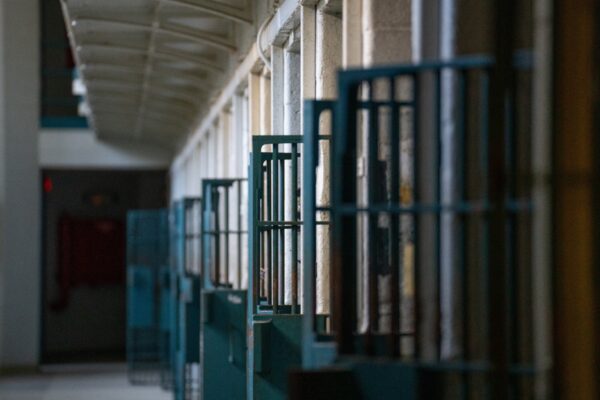New Jersey State Prison (NJSP), the oldest operating prison in the United States, has been condemned for over a century. Advocacy groups have called for its closure since 1917 because of its outdated facilities and inhumane conditions. The fact that it is still operating to this day is egregious.
The ACLU of New Jersey works to protect the rights and dignity of people incarcerated in prisons, jails, and detention centers in New Jersey. Our team has dedicated decades seeking accountability from prison officials for inhumane conditions and threats to health and safety and working toward reducing the number of people in state prisons and jails by advocating for more releases and fewer incarcerations.
New Jersey has been in the shameful position of being the state in the country with the worst racial disparities in its prisons, with a Black person being 12 times more likely to be incarcerated than a white person. To meaningfully reform the criminal legal system, we must prioritize social and racial justice – and that includes understanding the harms of incarceration, exposing the harms of the prison system, and adopting non-punitive alternatives to incarceration that expand access to opportunity and rehabilitation.
The New Jersey Office of the Corrections Ombudsperson (OCO) recently investigated the NJSP West Compound. The office conducted detailed work, including several days of inspection, half a year of following up, and 116 interviews. The resulting inspection report found, once again, that the NJSP West Compound should be demolished and rebuilt to meet the needs of the department and the people who are incarcerated.
The role of New Jersey’s ombudsperson is to document problems and recommend fixes to propose fair and accountable solutions. Their methodology is centered on impartial, confidential, and independent conflict resolution allowing for an unbiased and nonpartisan approach to identify issues. This system of independent review allows the ombudsperson to provide an accurate assessment what is going on in specific institutions.
Robust oversight like this is important and necessary, both through the role of the OCO and their thorough, action-oriented reports that are available to the public. Yet oversight is only as good as its implementation.
The OCO has been conducting painstaking, methodical work, not only in its report on the conditions in the NJSP West compound, but also with its inspection of facilities across the state and special reports on systemic problems across prisons. The OCO’s findings and reports are a roadmap to reform that policymakers should act on. The OCO has shown itself to play an indispensable role in the operations of New Jersey’s correctional system. It provides a channel for incarcerated people to share their experiences and lays the groundwork for meaningful transparency, accountability, and change.
After more than 100 years of calls for the NJSP West Compound to close because of its deplorable conditions, that it still remains open is indicative of systemic failings and lack of respect for human dignity. Far too many people are being held in conditions that threaten their health and safety on a daily basis.
The OCO’s report on the conditions in the NJSP West Compound has exposed decades of neglect. The findings are clear: the NJSP West Compound must be shut down in order to prioritize the humanity and dignity of those who are incarcerated and to further work to decarcerate New Jersey.



